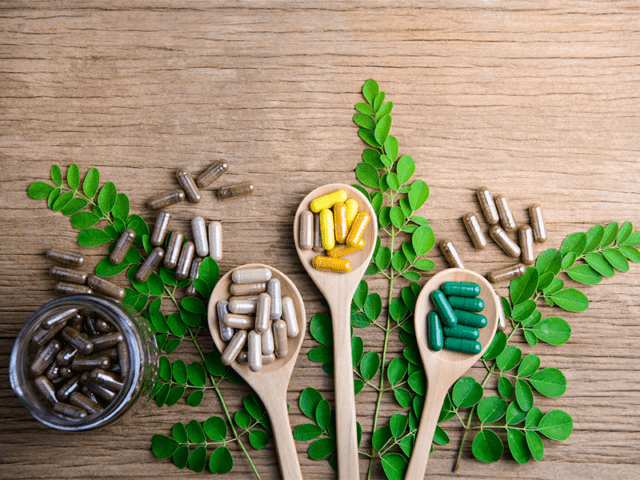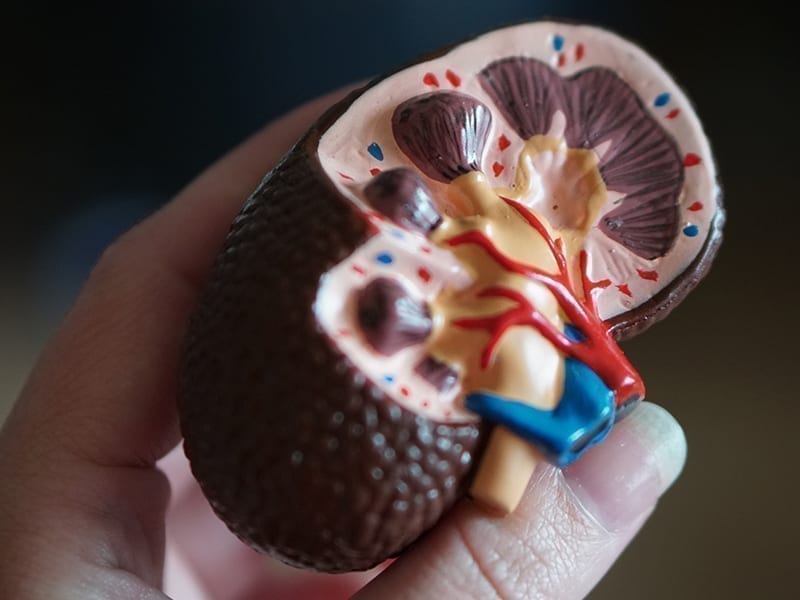We never think of a specific organ when trying to be healthy overall. But, as you age, paying attention to bone health, kidney and liver function, and heart health becomes increasingly important. A great way to ensure the upkeep of these organs is to eat a diet of foods that support their function. So, when it comes to your kidneys, what are those foods and why is it so important to tailor your diet?
Know that your kidneys are responsible for detoxing and removing waste from your body. They also play a part in regulating blood pressure, maintaining bone health, and keeping your haemoglobin levels in check.
Nephrologist Dr Veerabhadra Gupta, Medical Advisor at Bangalore Kidney Foundation, Bangalore, shares how you can eat your way to better kidney health by including some everyday Indian foods in your daily diet.
1. Why is kidney health so important?

The kidney is the major player in the regulation of blood pressure and the make-up of the blood. The kidney is a remarkably intricate organ that acts as the filter system of the body. Kidneys also work to keep the whole body in a state of chemical balance. They also help in maintaining proper acid-base balance, keep bones healthy, help in maintaining optimum fluid, electrolytes and in certain situations, glucose balance.
There is no specific age as such when kidney ailments are triggered. However, in childhood, congenital anomalies/genetic disorders and their related issues tend to be more common. Similarly, the majority of kidney problems occur in old age as a consequence of loss of renal mass and as a side-effect of ageing, or effects of diseases such as diabetes mellitus, hypertension, and more.
Inflammatory/infections of the kidneys may occur at any age.
2. What are the more common kidney-related diseases & health problems?

They are broadly classified as Acute Kidney Injury and Chronic Kidney Disease.
Acute kidney failure occurs when your kidneys suddenly become unable to filter waste products from your blood. When your kidneys lose their filtering ability, dangerous levels of wastes may accumulate, and your blood’s chemical makeup may get out of balance.
Acute kidney failure develops rapidly, usually in less than a few days to a few weeks. Acute kidney failure is most common in people who are already hospitalised, particularly in critically ill people who need intensive care.
Acute kidney failure can be fatal and requires intensive treatment. However, acute kidney failure may be reversible. If you’re otherwise in good health, you may recover to normal or nearly normal kidney function.
Chronic kidney disease, also called chronic kidney failure, describes the gradual loss of kidney function. When chronic kidney disease reaches an advanced stage, dangerous levels of fluid, electrolytes and wastes can build up in your body.
In the early stages of chronic kidney disease, you may have few signs or symptoms. Chronic kidney disease may not become apparent until your kidney function is significantly impaired.
Treatment for chronic kidney disease focuses on slowing the progression of kidney damage, usually by controlling the underlying cause. Chronic kidney disease can progress to end-stage kidney failure, which is fatal without artificial filtering (dialysis) or a kidney transplant.
3. Are women at an increased risk of kidney disease?
Some estimates show a higher incidence of chronic kidney disease in women, compared with men, globally. Women are also more likely to develop kidney disease because conditions such as lupus, rheumatoid arthritis, scleroderma and kidney infection are more common in women.
4. Are PCOS and Polycystic Kidney Disease (PKD) related? Can kidney problems affect the menstrual cycle?

In a few cases, PCOS (Polycystic Ovarian Syndrome) has been reported in female PKD (Polycystic Kidney Disease) patients. However, it is suggested that PKD patients and their unaffected relatives do not exhibit elevated risks of PCOS.
When a woman has chronic kidney disease, her periods tend to be irregular. Once she begins dialysis, her periods may even stop altogether.
5. Can lifestyle habits cause kidney problems?

The accumulation of unhealthy lifestyle behaviours has been shown to be associated with the incidence of CVD, stroke, metabolic syndrome, type 2 diabetes, hypertension, and dyslipidemia.
In addition to hypertension, diabetes mellitus, and metabolic syndrome, the incidence of CKD is also closely correlated with unhealthy lifestyle behaviours, such as smoking, heavy alcohol intake, obesity, physical inactivity, and unhealthy diet.
6. What are some early signs you have kidney disease or kidney problems?
Signs and symptoms of acute kidney failure may include:
- Decreased urine output, although occasionally urine output remains normal
- Fluid retention, causing swelling in your legs, ankles or feet
- Shortness of breath
- Fatigue
- Confusion
- Nausea
- Weakness
- Irregular heartbeat
- Chest pain or pressure
- Seizures or coma in severe cases
Signs and symptoms of chronic kidney disease develop over time if kidney damage progresses slowly. Signs and symptoms of kidney disease may include:
- Nausea
- Vomiting
- Loss of appetite
- Fatigue and weakness
- Sleep problems
- Changes in how much you urinate
- Decreased mental sharpness
- Muscle twitches and cramps
- Swelling of feet and ankles
- Persistent itching
- Chest pain, if fluid builds up around the lining of the heart
- Shortness of breath, if fluid builds up in the lungs
- High blood pressure (hypertension) that’s difficult to control
7. What are some dietary changes that can help improve kidney health?

Reduce sodium in your diet. Be sure to stay away from processed foods and choose fresh fruits and vegetables. Reduce foods that are high in saturated fats and cholesterol like eggs, whole milk, cheese and fried foods.
People with kidney problems need to follow the renal diet (depends on the stage of renal failure). Consult your doctor or dietician for further advice.
8. Can over-the-counter supplements be used to improve or maintain kidney health?

Nutritional supplements include a broad range of products. Some are available over the counter, while others require a prescription. Some supplements have a lot of protein and calories, the nutrients that help you gain weight. There are also bodybuilding supplements, and on the other end of the spectrum, weight loss supplements. Supplements can be for single nutrients, such as vitamin D or iron, or multiple nutrients, such as a multivitamin. Herbal products also fall under the umbrella of nutritional supplements.
Even if you don’t have kidney disease, you should talk with your healthcare provider before taking any nutritional supplements in order to find the one(s) that might be right for you. Supplements are not regulated by the Food and Drug Administration (FDA), and many products can be dangerous, especially for people with kidney disease. Supplements for weight loss, bodybuilding, or an “energy boost” should not be used by people with kidney disease or kidney failure. You may hear a friend or family member claim a herbal supplement has improved their health or well-being. While this advice may be okay for them, it can be dangerous for you, because some herbal products can harm your kidneys and actually make kidney disease worse.
Disclaimer: This is for the general information of the readers. Always consult a Nephrologist for specific renal health problems.


